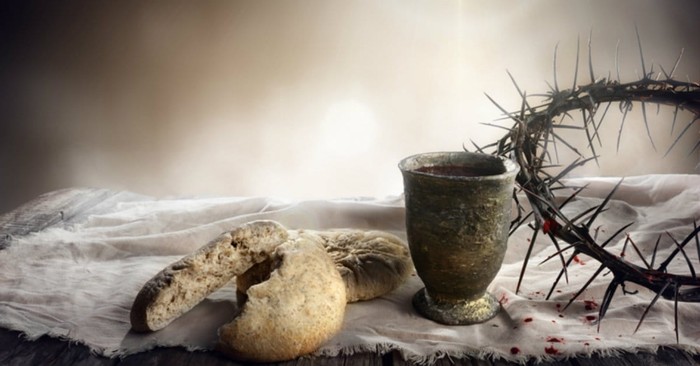
Most of us are familiar with the Easter holiday and Good Friday. But what is Maundy Thursday? Celebrated the Thursday before Easter, scholars believe Maundy Thursday was the day when Jesus celebrated his final Passover with His disciples. Jesus led his disciples in the first act of communion where he symbolizes his death and resurrection through the bread and wine of the Passover Meal.
During this Passover meal, we see Jesus washing the feet of His disciples. After showing this example of humility, love, and service, Jesus then commanded his disciples to go and serve likewise. Jesus also foretells his betrayal during this time. Maundy Thursday marks an important part of Holy Week; here is what you should know about this day that commemorates the day Jesus submitted His will to that of the Father and prayed "Not my will, but thine, be done" (Luke 22:42).
Matthew 26:26-29: "Now as they were eating, Jesus took bread, and after blessing, it broke it and gave it to the disciples, and said, “Take, eat; this is my body.” And he took a cup, and when he had given thanks he gave it to them, saying, “Drink of it, all of you, for this is my blood of the covenant, which is poured out for many for the forgiveness of sins. I tell you I will not drink again of this fruit of the vine until that day when I drink it new with you in my Father's kingdom.”
Let's discuss what Maundy Thursday is and why Christians celebrate it.
Photo courtesy: ©Thinkstock/RomoloTavani
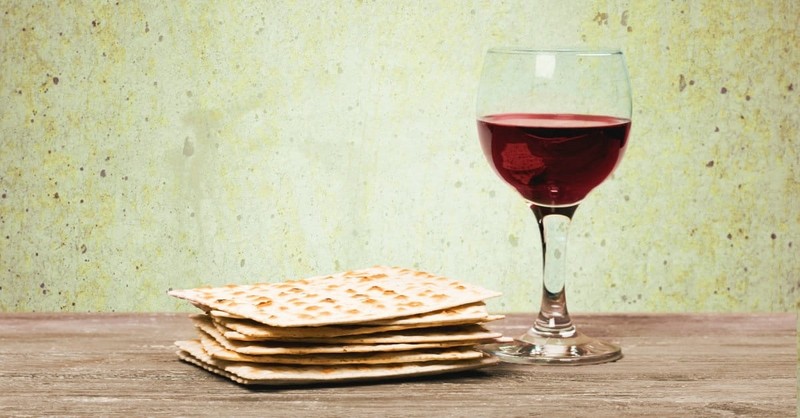
1. What does 'Maundy Thursday' mean?
Scholars believe that the word "maundy" comes from the Latin word "mandatum," which means "command." It is on this Thursday before his crucifixion that Jesus gives his disciples a new mandate or command to love one another. The sum of the Gospel was given on this Maundy Thursday. Jesus and his disciples had just shared what was known as the Last Supper and he was washing their feet when he stated:
"A new commandment I give to you, that you love one another: just as I have loved you, you also are to love one another" (John 13:34).
Maundy Thursday is also known as "Holy Thursday" (Catholic and Methodist), "Covenant Thursday" (Coptic), "Great and Holy Thursday" (Eastern Orthodox), and "Thursday of Mysteries" (Syriac Orthodox). If I were to give today another name, it would be "Communion Thursday."
Photo courtesy: ©Thinkstock/artisteer
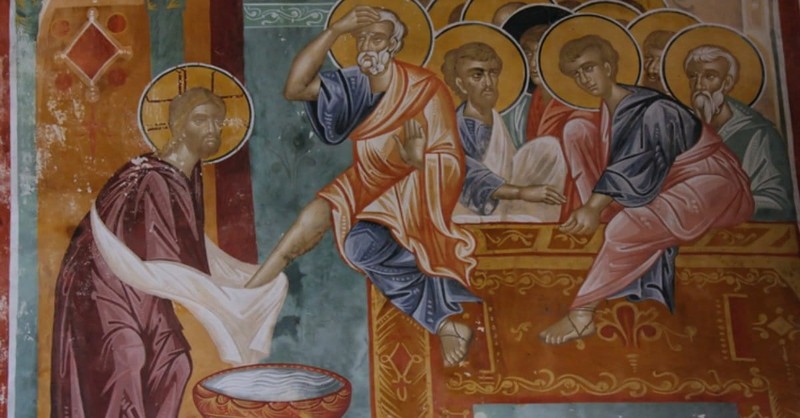
2. What was the "New Commandment" Jesus gave on Maundy Thursday?
Now to fully appreciate this command, we have to remember that at this supper Jesus and the disciples were obeying God’s original command to the Jews to remember the Passover. The Passover meal celebrated God rescuing His people from Egypt, as described in the book of Exodus. For Jesus to have the audacity to offer a “new” command when the old one was such an important part of Israel’s history, is astounding enough. But Jesus went even further. Rather than remembering the redemption of their forefathers from Egyptian tyranny and the way the angel of death “passed over” the homes with lamb’s blood on their doorposts, they were now to remember His broken body and His shed blood. In Christ’s death, death itself is not just avoided; it is defeated.
The new commandment to love others is able only through the sacrifice of Jesus. We can know and experience the forgiveness of sins and the full love of God through the death and resurrection of Jesus Christ. Jesus loved his enemies to the point of death and we are called to show the same level of love to everyone. God loved us while we were yet sinners (Romans 5:8) and the gift of salvation calls us forward to do likewise.
As Jesus washed the disciples' feet on Maundy Thursday, he set into motion what would be completed on Easter Sunday. His sacrificial example calls for us to love as he has loved us.
Photo courtesy: ©Thinkstock/jorisvo
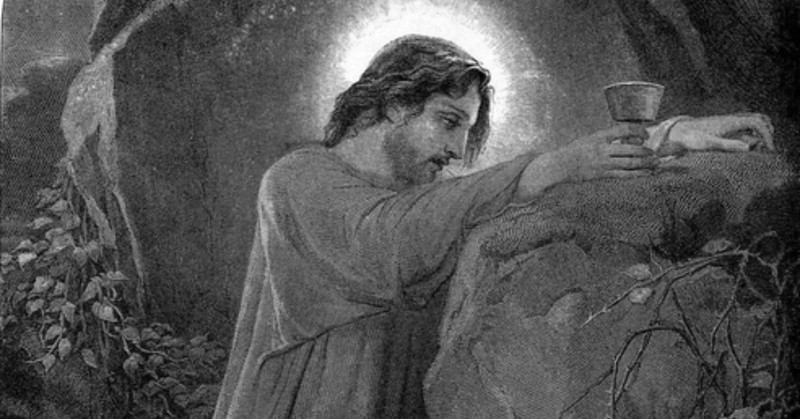
3. What else happened on Maundy Thursday?
Maundy Thursday was filled with significant events. Not only did Jesus share the Passover meal and communion, but is also the day he retreated to the Garden of Gethsemane.
While Judas left to go to the Jewish leaders to betray Him, Jesus knelt in agony, prayer, and surrender.
Writing for DesiringGod.org, David Mathis says in the article "The House Had Come: Maundy Thursday in the Garden of Agony" that Maundy Thursday marks the time when "the hour had come."
The Bible often records Jesus saying His hour had not yet come (John 2:4), but on Maundy Thursday, he knew that the beginning of the fulfillment of His greatest mission on Earth had come.
"All Jesus’s human life had anticipated this hour," writes Mathis. "Every careful attempt at keeping the messianic secret. Every emotional investment poured gladly into his disciples. Every glimpse of the ocean of his kindness as he healed the blind, the mute, the lame, the demonized, and even raised the dead.
Now the hour has come. All history hinges on this hour. And it is utterly terrifying. Jesus must decide: Will he protect his own skin, and soul, or will he embrace his Father’s perfect and painful will?"
On Maundy Thursday, Jesus agonizes over what He is about to face on the cross and he "prayed more fervently, and he was in such agony of spirit that his sweat fell to the ground like great drops of blood" (Luke 22:44).
Photo courtesy: ©Thinkstock/Ruskpp

4. How Should Christians Observe and Celebrate Maundy Thursday?
As mentioned, Good Friday gets a lot of attention, as well as Easter Sunday, of course, but the events of Maundy Thursday, while not as dramatic and monumental as Christ's death and resurrection, are integral to the story that God has been writing since the beginning of time. In Jesus' act of washing the disciples' feet and in His crying out to His Father to "let this cup pass from Me," (Matt. 26:39), we see his humanity and the great sacrifice He paid for our sins.
And that is something we would do well to reflect upon often. While Scripture doesn't specifically mention a day to commemorate Maundy Thursday, we are to continue observing communion. Many churches observe Maundy Thursday with a special communion service that includes a foot-washing ceremony. Doing so helps us to remember the selfless sacrifice of Jesus and our call to love and serve one another. These services may include scripture readings recounting the events of the Last Supper, prayers, hymns, and sermons reflecting on the significance of Jesus' actions.
"Beloved, let us love one another. For love is from God, and whoever loves has been born of God and knows God. Anyone who does not love does not know God, because God is love." (1 John 4:7-8)
Below is a Prayer for Maundy Thursday:
Lord God,
You sent your Son into the world,
And before his hour had come,
He washed his disciples’ feet.
You had given all things into his hands.
He had come from you, and was going to you,
And what did he do?
He knelt down on the floor,
And washed his friends’ feet.
He was their teacher and their Lord,
Yet he washed their feet.
Lord God, help us learn from his example;
Help us to do as he has done for us.
The world will know we are his disciples
If we love one another.
Strengthen our hands and our wills for love
And for service.
Keep before our eyes the image of your Son,
Who, being God, became a Servant for our sake.
All glory be to him who lives and reigns with you and the Holy Spirit,
One God, now and forever.
Amen.
Photo credit: ©Thinkstock/mabe123
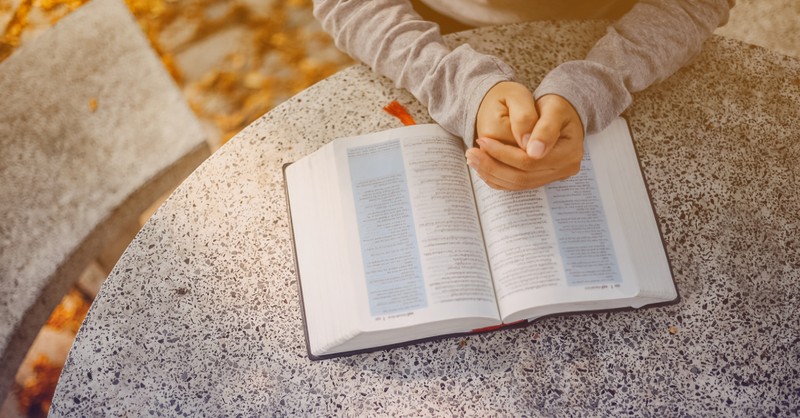
5. Maundy Thursday Bible Verses
Luke 22:27-38 - " When the hour came, Jesus and his apostles reclined at the table. 15 And he said to them, “I have eagerly desired to eat this Passover with you before I suffer. For I tell you, I will not eat it again until it finds fulfillment in the kingdom of God.” After taking the cup, he gave thanks and said, “Take this and divide it among you. For I tell you I will not drink again from the fruit of the vine until the kingdom of God comes.” And he took bread, gave thanks and broke it, and gave it to them, saying, “This is my body given for you; do this in remembrance of me.” .."
John 13:2-17 - "Jesus knew that the Father had put all things under his power, and that he had come from God and was returning to God; so he got up from the meal, took off his outer clothing, and wrapped a towel around his waist. After that, he poured water into a basin and began to wash his disciples’ feet, drying them with the towel that was wrapped around him. He came to Simon Peter, who said to him, “Lord, are you going to wash my feet?” Jesus replied, “You do not realize now what I am doing, but later you will understand.” “No,” said Peter, “you shall never wash my feet.” Jesus answered, “Unless I wash you, you have no part with me.” “Then, Lord,” Simon Peter replied, “not just my feet but my hands and my head as well!”
Philippians 2:1-11 - "Therefore if you have any encouragement from being united with Christ, if any comfort from his love, if any common sharing in the Spirit, if any tenderness and compassion, then make my joy complete by being like-minded, having the same love, being one in spirit and of one mind. Do nothing out of selfish ambition or vain conceit. Rather, in humility value others above yourselves, not looking to your own interests but each of you to the interests of the others. In your relationships with one another, have the same mindset as Christ Jesus: Who, being in very nature God, did not consider equality with God something to be used to his own advantage; rather, he made himself nothing by taking the very nature of a servant, being made in human likeness...
Photo courtesy: Getty/Jantanee Rungpranomkorn
Originally published Thursday, 09 April 2020.








